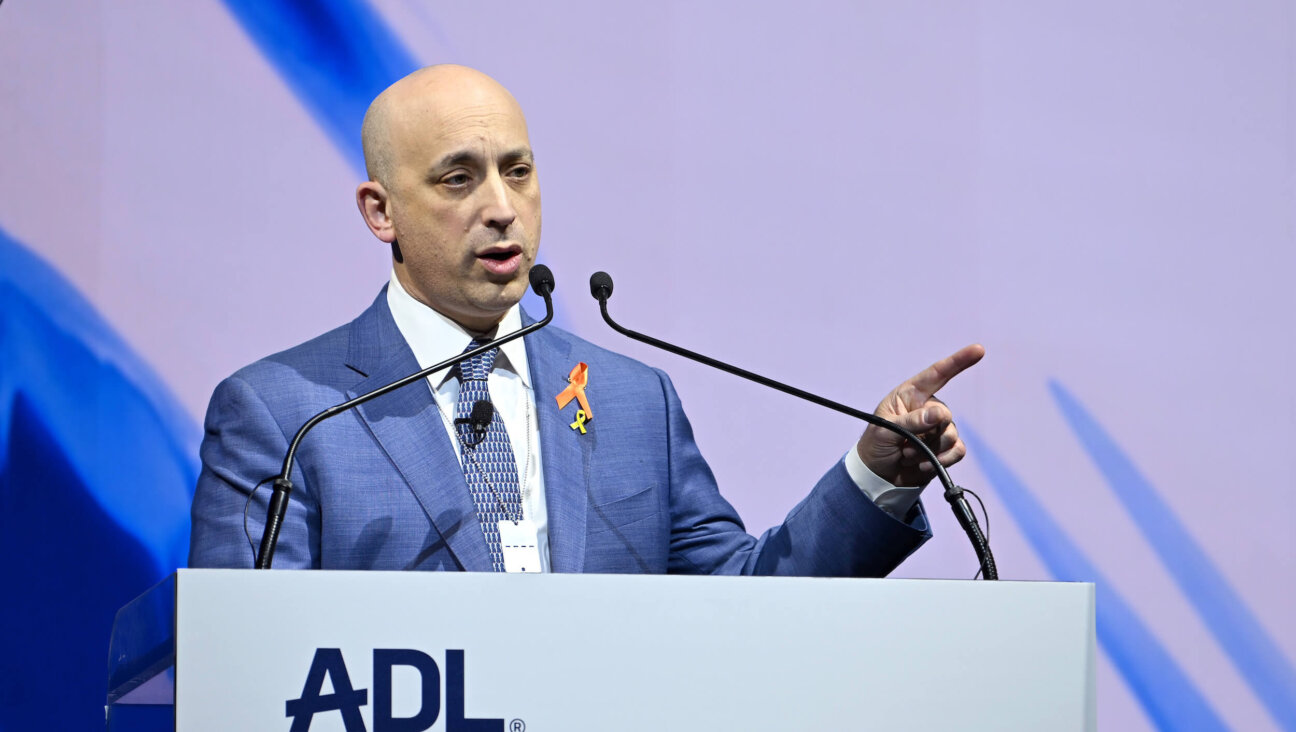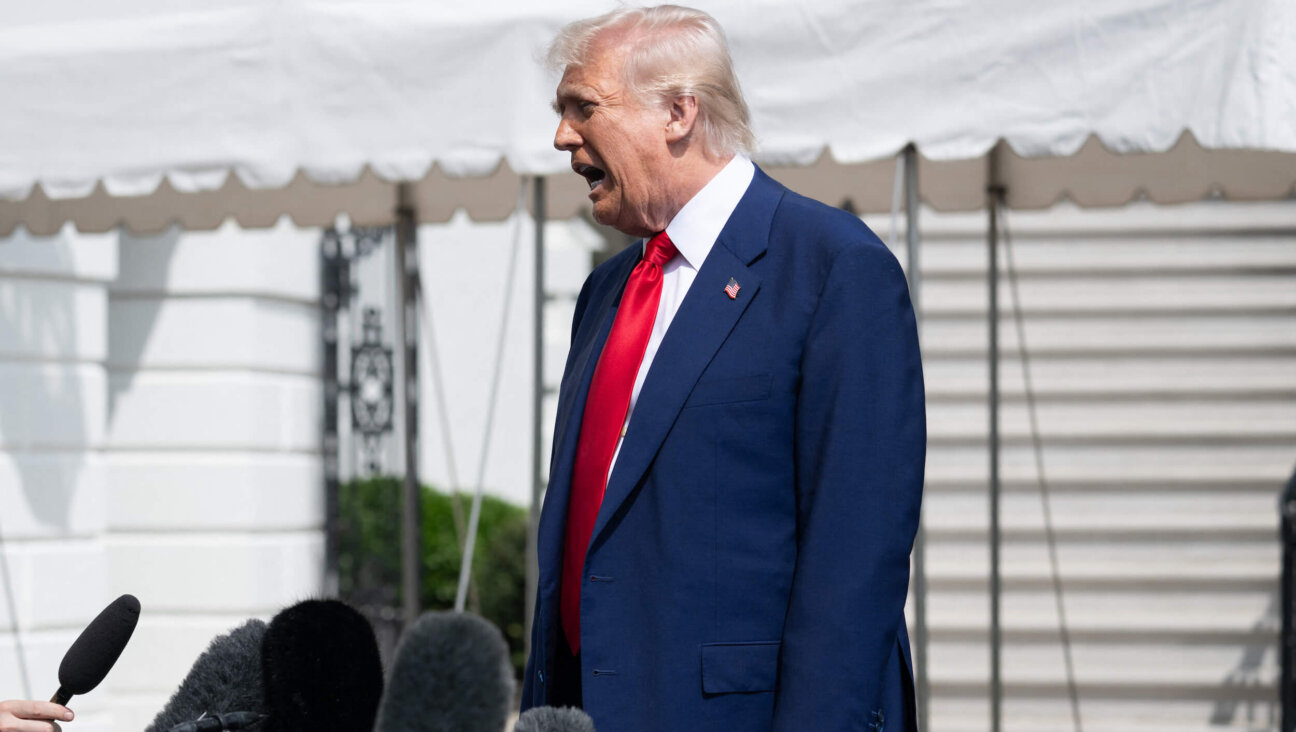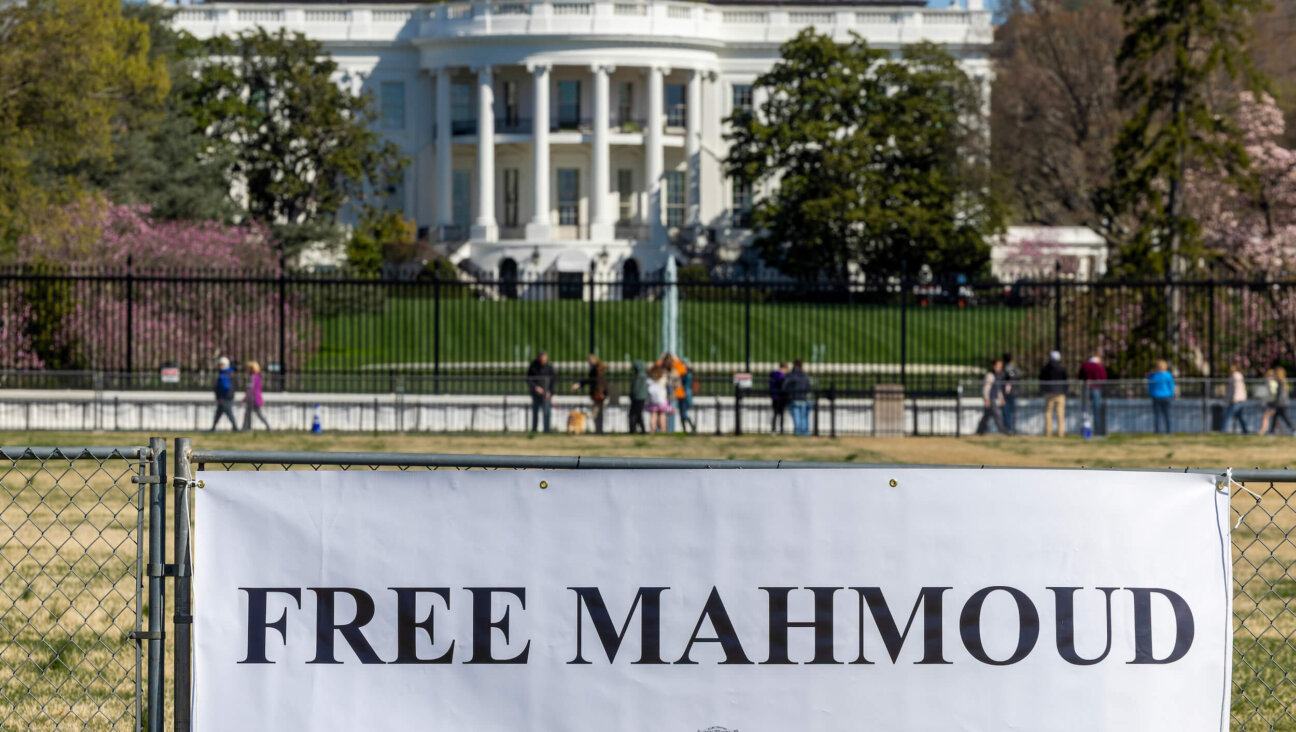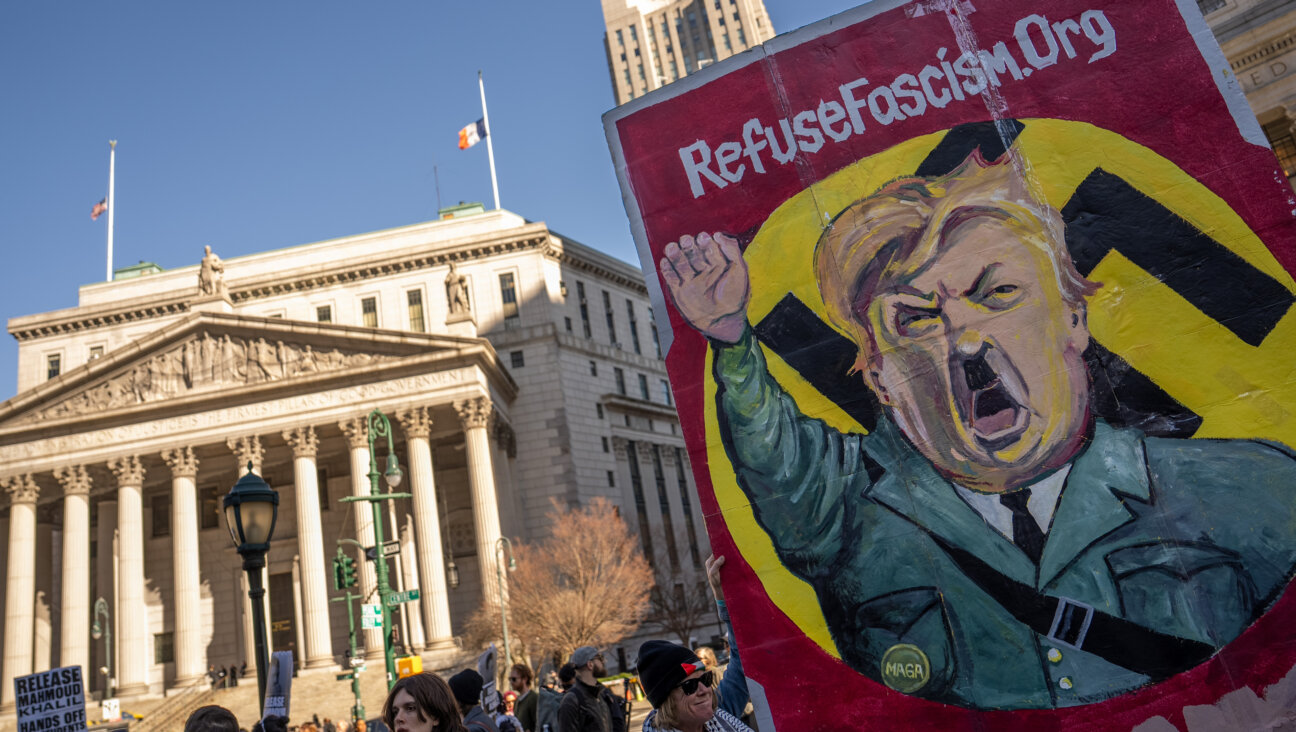The Four Questions of the Peace Process
Disengagement is going to happen this summer. That is now the working assumption of most observers and practitioners. Even the settlers, the “victims” of disengagement, are increasingly recognizing the inevitable and are correspondingly adjusting their opposition tactics toward merely making the experience as unpleasant as possible. In so doing, they hope to persuade the Israeli mainstream that this should be the first and last dismantling of settlements.
Will it be? With disengagement virtually underway, attention is increasingly focusing on the day after. Even President Bush and Prime Minister Sharon, in an April 11 press conference designed mainly to help Sharon with disengagement, found it necessary to mention what follows. Notably, this was one of the few areas where they openly disagreed, with Bush optimistic about Palestinian democracy generating a peace process and Sharon prepared to say only that nothing could move until the terrorism stops.
Was that note of discord a harbinger of disagreements to come? In truth, no one, including Bush and Sharon, knows for certain what the day after will bring. All we can do right now is gather information and assessments that hopefully will be relevant for understanding the post-disengagement situation once the smoke clears over the dismantled Gush Katif settlements. The intelligence technique for dealing with this stage is to frame the relevant questions, so we know what information and assessments to pay attention to in the coming weeks and months.
In the spirit of Passover, my list contains four questions. Answer them, and we’ll know what the post-disengagement future holds for Israel and the Palestinians.
One: How much has Sharon changed in his approach to territory and settlements? Clearly he has changed — otherwise he would not be dismantling settlements that he helped build and which less than two years ago he was insisting were as important as Tel Aviv. Based on his current performance and his previous views, we can also assume that he prefers unilateral Israeli action to a peace process with Israel’s Palestinian neighbors, whom he deeply distrusts.
But is he prepared to dismantle more West Bank settlements, or is he leaving Gaza only to hold on to the West Bank? Does his deputy Ehud Olmert speak for him when he says, “We’ll have to unilaterally remove another 50,000 settlers from the West Bank”? Or does his adviser Dov Weissglas, who stated that Sharon is putting the process in formaldehyde, and that those 50,000 settlers would be removed only after the Palestinians learned to “behave like Finns”?
Two: Can Palestinian leader Mahmoud Abbas succeed in implementing his reform program? Unlike Sharon, Abbas’s intentions are clear: He wants to end all Palestinian violence, coopt all the militants, bring Hamas into the political process, carry out electoral, monetary and far-reaching security reforms, and show up on Bush’s doorstep asking that the president make good on his promise of a viable, contiguous Palestinian state.
So far the results of his efforts are a very mixed bag; in particular he has barely dared to begin the necessary security reforms. Moreover, some Palestinians fear that Abbas’s very success in democratizing could mean a Hamas takeover, which would radically alter all the parameters of Israeli-Palestinian interaction.
Three: Assuming Abbas does succeed, how serious is Bush about realizing a two-state solution? If he is serious, he risks a head-on confrontation with Sharon over the territorial parameters of such a solution, especially in Jerusalem. Tensions with Sharon could be translated into domestic pressures on Bush and the Republican-led Congress on the part of powerful Jewish and Evangelical interest groups.
Moreover, if Bush is serious he will also inevitably have to risk going the way of Bill Clinton: getting deeply involved in the process, knowing it could fail as his term is running out. It was the specter of Clinton’s failure that persuaded Bush to play a relatively passive role in the conflict in the first place.
Bush is still in that mode, as evidenced by his April 11 press conference statement, apropos Israeli and Palestinian non-compliance with the roadmap: “It seems like an important role for the United States is to remind people of their obligations.” Hardly a hands-on act, but Bush’s commitment has not yet been put to the test.
Four: Finally, what else can happen between now and then to influence the course of events? In the Israeli-Palestinian sphere, disengagement violence could leave Israel deeply traumatized, while Sharon is almost certain to opt for new elections by next winter and put everything on hold for an additional six months. In the Middle East at large, the situation in Iraq, Lebanon and Iran could still go terribly wrong and develop into a major preoccupation for both the United States and Israel. And in the world, an act of mega-terrorism or an oil-price crisis or something else could easily generate major new preoccupations.
Indeed, it is the unexpected that is almost certain to tip the scales of Middle East-related decisions and considerations in the coming months — for better or for worse.
Yossi Alpher, a former senior adviser to Prime Minister Ehud Barak and former director of the Jaffee Center for Strategic Studies, is co-editor of the bitterlemons family of online publications.
The Forward is free to read, but it isn’t free to produce

I hope you appreciated this article. Before you go, I’d like to ask you to please support the Forward.
At a time when other newsrooms are closing or cutting back, the Forward has removed its paywall and invested additional resources to report on the ground from Israel and around the U.S. on the impact of the war, rising antisemitism and polarized discourse.
Readers like you make it all possible. We’ve started our Passover Fundraising Drive, and we need 1,800 readers like you to step up to support the Forward by April 21. Members of the Forward board are even matching the first 1,000 gifts, up to $70,000.
This is a great time to support independent Jewish journalism, because every dollar goes twice as far.
— Rachel Fishman Feddersen, Publisher and CEO
2X match on all Passover gifts!
Most Popular
- 1

News A Jewish Republican and Muslim Democrat are suddenly in a tight race for a special seat in Congress
- 2

Fast Forward The NCAA men’s Final Four has 3 Jewish coaches
- 3

Fast Forward Cory Booker proclaims, ‘Hineni’ — I am here — 19 hours into anti-Trump Senate speech
- 4

Film & TV What Gal Gadot has said about the Israeli-Palestinian conflict
In Case You Missed It
-

Film & TV In 1913 Vienna, Freud meets Hitler — and the patient of his nightmares
-

Theater The ‘Glengarry Glen Ross’ revival has us wondering — where are all the Jewish Shelley Levenes?
-
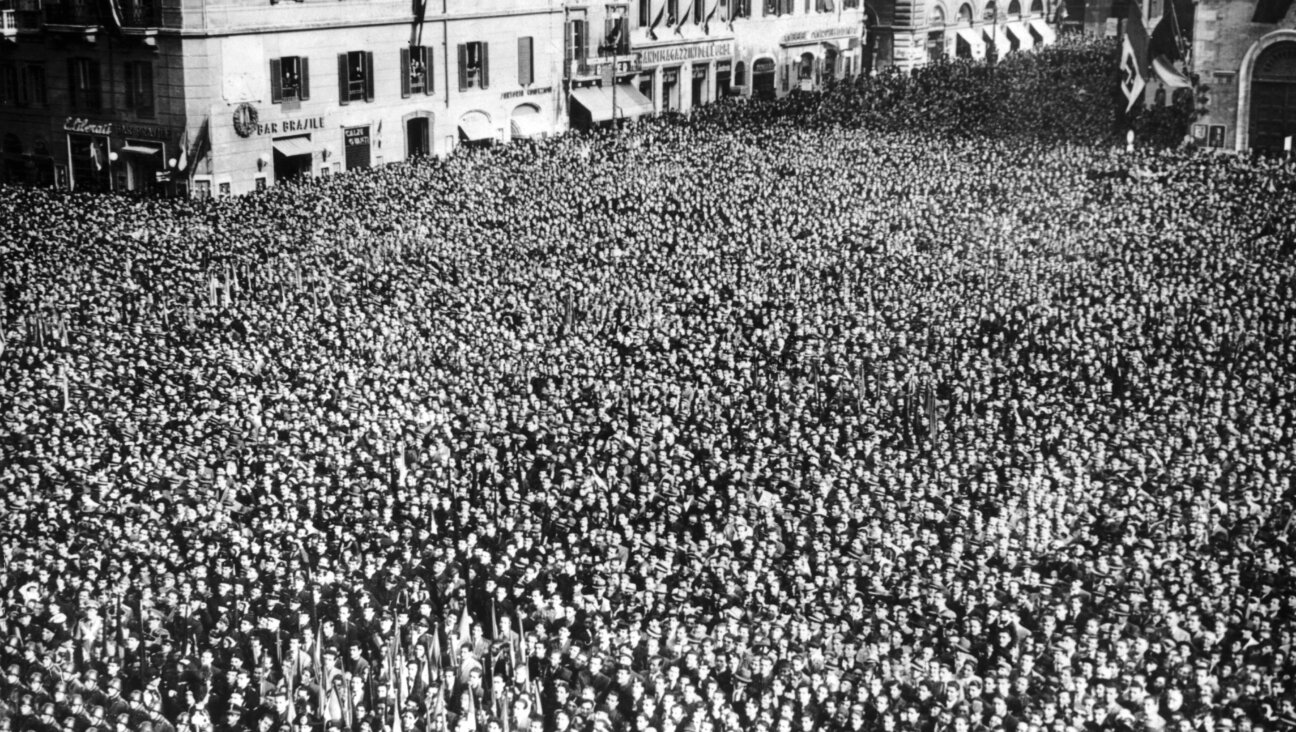
Books From an Italian Holocaust survivor, a Kafkaesque nightmare of imprisonment under fascism
-

Film & TV Why Robby said the Shema on ‘The Pitt’
-
Shop the Forward Store
100% of profits support our journalism
Republish This Story
Please read before republishing
We’re happy to make this story available to republish for free, unless it originated with JTA, Haaretz or another publication (as indicated on the article) and as long as you follow our guidelines.
You must comply with the following:
- Credit the Forward
- Retain our pixel
- Preserve our canonical link in Google search
- Add a noindex tag in Google search
See our full guidelines for more information, and this guide for detail about canonical URLs.
To republish, copy the HTML by clicking on the yellow button to the right; it includes our tracking pixel, all paragraph styles and hyperlinks, the author byline and credit to the Forward. It does not include images; to avoid copyright violations, you must add them manually, following our guidelines. Please email us at [email protected], subject line “republish,” with any questions or to let us know what stories you’re picking up.







